Launch of Policy Paper and Cooperative Operational Guidelines for Climate Change Financing
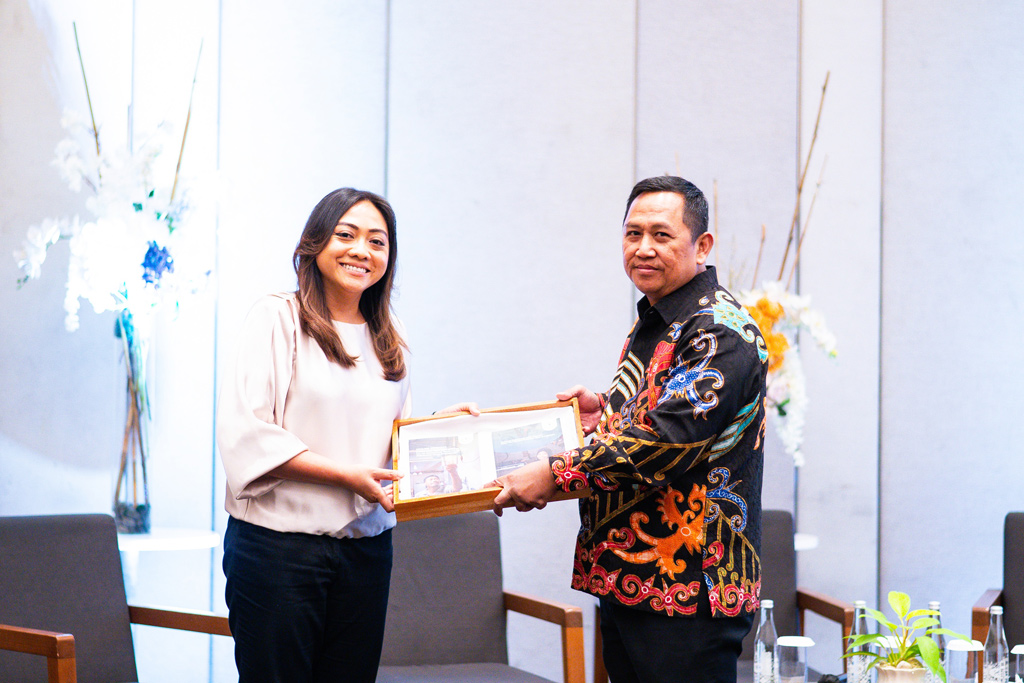
Yayasan Rumah Energi (YRE) supported by ClimateWorks Foundation is launching the Policy Paper and Cooperative Operational Guidelines for Climate Change Financing. The launch of these two documents is part of the implementation of the Green Cooperative program aims to increase the capacity of all cooperatives in Indonesia, both in terms of governance and empowering their members, as agents of change for sustainable micro-financing, especially for climate change mitigation and adaptation activities.
After conducting research and a series of discussion events, YRE held a Seminar on the Launch of a Policy Paper and Cooperative Operational Guidelines for Financing Climate Change took place at the DoubleTree by Hilton Hotel Jakarta, last Thursday (14/12). This activity was also held online via Zoom meeting to facilitate the participants, the majority of whom were cooperatives.
This activity was attended by stakeholders such as Deputy for Cooperatives at the Ministry of Cooperatives and SMEs (Kemenkop UKM) Ahmad Zabadi, SH, MM, Representative of the Head of the Department of Supervision of Microfinance Institutions and Other Financial Services Institutions Financial Services Authority (OJK) Imam Gozali, Representative of the Director of Fund Distribution Environmental Fund Management Agency (BPDLH) Eko Prasondita, Representative of the Chair of the Center for Climate Change and Multilateral Financing Policy of the Ministry of Finance Mohammad Zainul Abidin, Senior Program Associate of the Indonesia ClimateWorks Foundation Muhammad Zeki, Civil Society Organizations, Cooperatives, as well as Journalists and Academics.
The event opened with remarks from the Executive Director of YRE, Rebekka Angelyn. She stated that cooperatives have an important role in the economic and social order, especially in the agricultural, land, energy, and tourism sectors. She also gave an example of the success of cooperatives abroad in financing renewable energy.
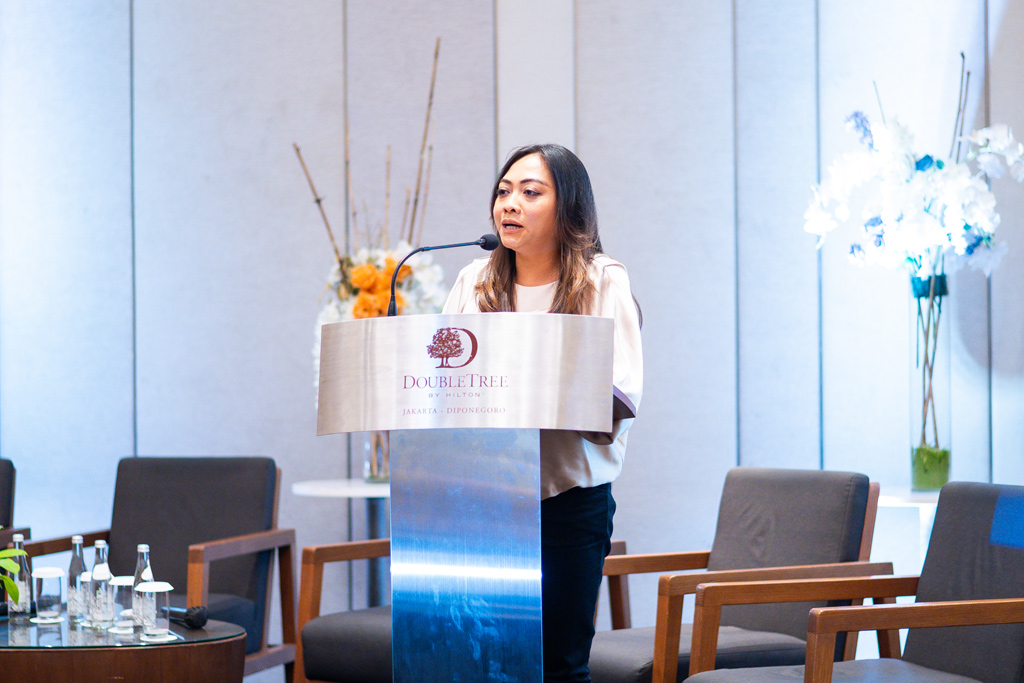
“In France, the role of cooperatives is very large, many cooperatives have built solar parks, and wind power in Australia,” she said. She also added his hope regarding this launch, “Hopefully, this policy paper can become a guide for formulating policies and discussing so that our cooperatives can compete at the global level.”
Then, in his remarks, the Deputy for Cooperatives at the Ministry of Cooperatives and Small and Medium Enterprises, Ahmad Zabadi, expressed the relevance of the issues developed at this event. According to him, Indonesia’s economic strength can rely on the economic strength of the community through cooperatives.
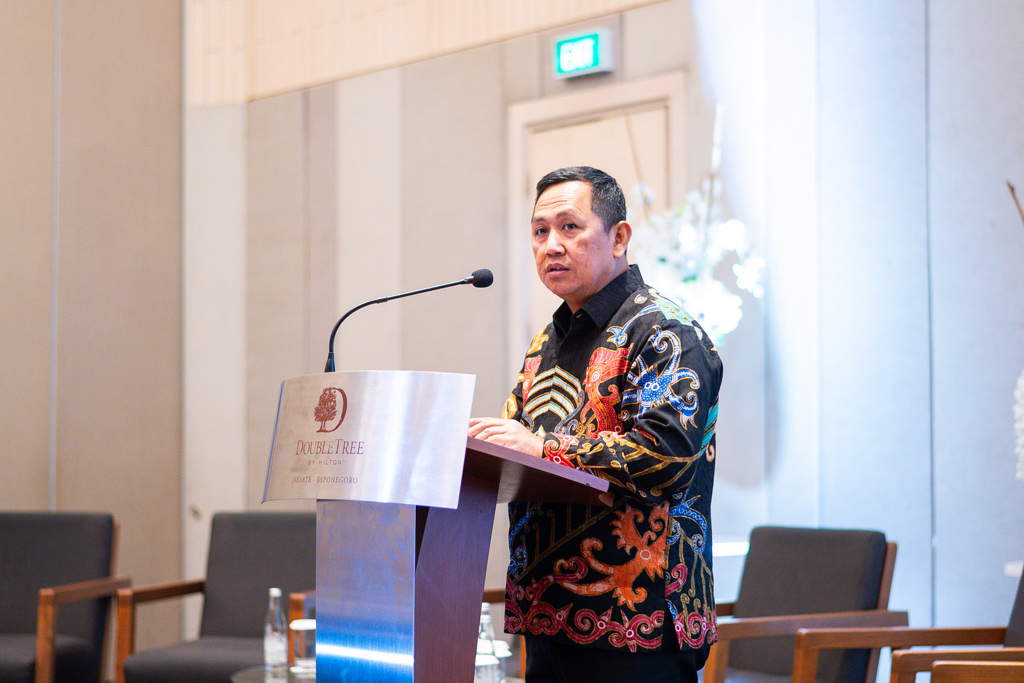
“The issues being developed are very relevant, I have been following them since the beginning. Many cooperatives have been born from community empowerment, one of which was present in this session, namely the TEKUN Cooperative. The strength of Indonesia’s economy can rely on the economic strength of the community. Cooperatives can be the basis of a green economy “In Switzerland, cooperatives can be a force for the green economy because almost 70% of Swiss people are members of cooperatives.” Said Ahmad Zabadi.
At this event, the two books on Policy Analysis and Cooperative Operational Guidelines were also handed over by YRE Executive Director Rebekka Angelyn to the Deputy for Cooperatives at the Ministry of Cooperatives, UKM, Ahmad Zabadi.
The event then continued with a series of panel discussions featuring representatives from various elements of organizations and agencies guided by the moderator. Each panel discussion session began with a presentation from the research team and authors of the Policy Analysis book and Cooperative Operational Guidelines book, Ramada Rian and Agam Subarkah to provide the context for the discussion.
Ramada Rian started the first-panel discussion session with a presentation on Strengthening Cooperatives in Financing Climate Change. Rian said there are challenges and opportunities in strengthening cooperatives in financing climate change. The challenges in question include complex financing, limited cooperative capacity, policy, and regulatory obstacles, as well as limited collaboration and networking. Meanwhile, opportunities can be seen from the role and action of local climate, access to local natural resources, financial intermediaries, capacity building opportunities, as well as collaboration and innovation which can still be explored further.
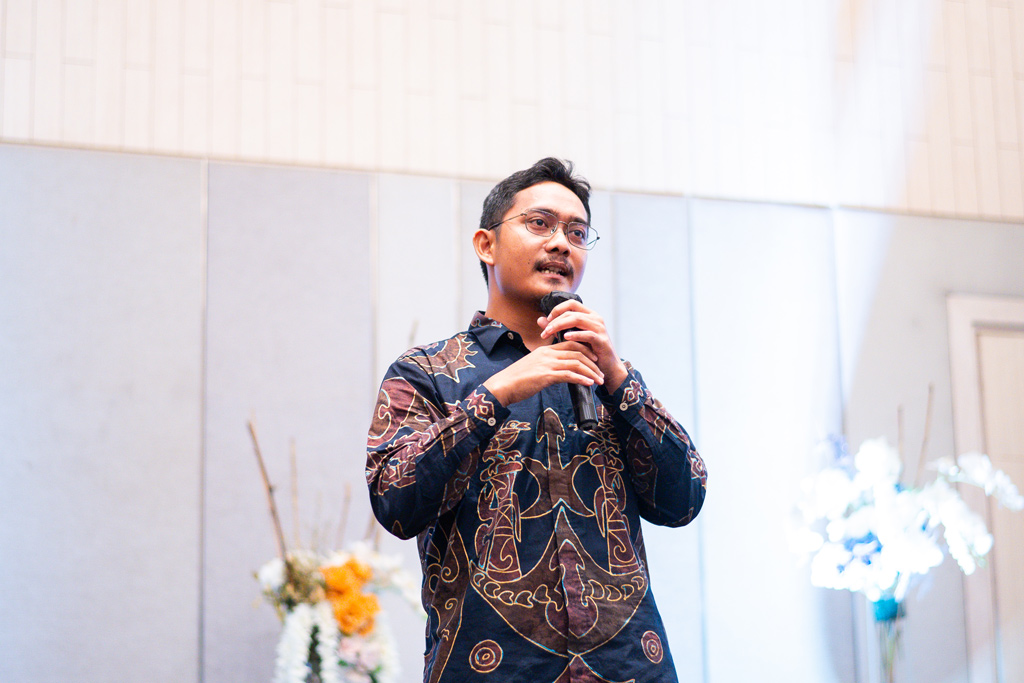
The first-panel discussion session presented Eko Prasondita (BPDLH), Mohammad Zainul Abidin (Kemenkeu/BKF), Atika Benedikta (ANGIN), and Ida Ayu Maharatni (Amoghasiddhi Cooperative). The discussion was moderated by Aris Prasetyo, Kompas Media Journalist.
Eko Prasondita responded to questions regarding the position of cooperatives in the climate financing landscape in Indonesia. According to him, currently, BPDLH has two cooperative institutions as distributors working on environmental issues, where one of the requirements is that members must be able to maintain existing trees. If members do not have trees, BPDLH collaborates with the Ministry of Environment and Forestry to provide planting seeds to mitigate climate change. He also revealed how BPDLH was involved in working with cooperatives.
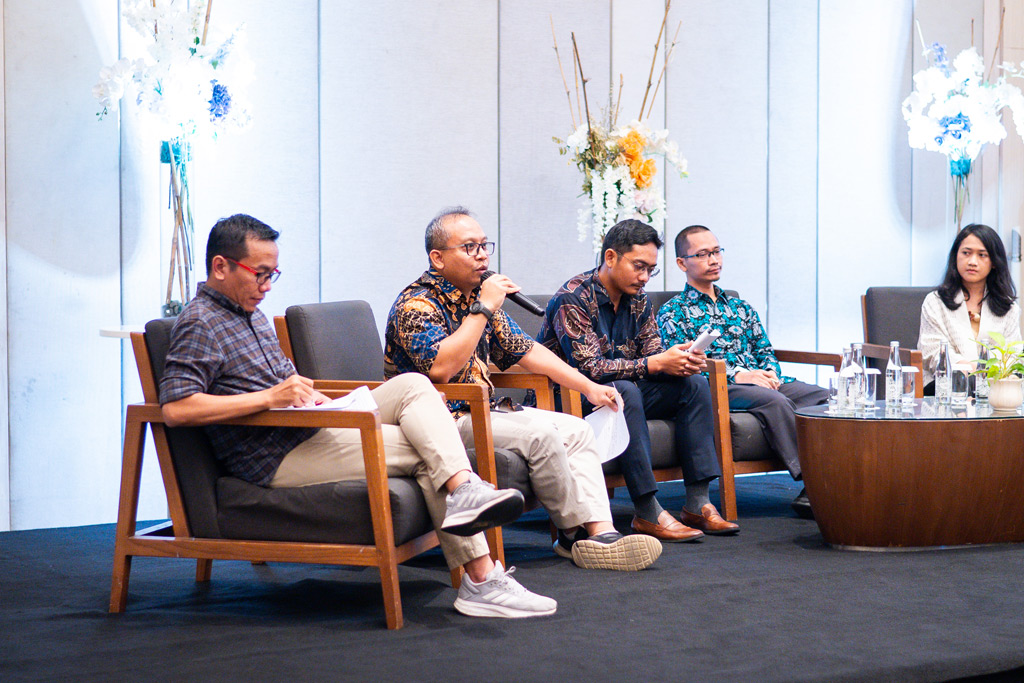
“Currently, we are encouraging members from the energy side, because members are not only from the agricultural side but also from animal husbandry. So the products from animal husbandry, apart from meat and milk, can also be made from manure so that they can be used as biogas. We from BPDLH are ready to collaborate with cooperatives, both cooperatives savings and loans and producer cooperatives.” Said Eko Prasondita.
Meanwhile, the Ministry of Finance’s Fiscal Policy Agency (BKF) encourages and directs companies to be socially responsible, such as CSR and also carrying out carbon trading, as well as from the international side through private cooperation and with the Green Climate Fund (GCF). This will be a potential financing that supports ongoing climate action in Indonesia.
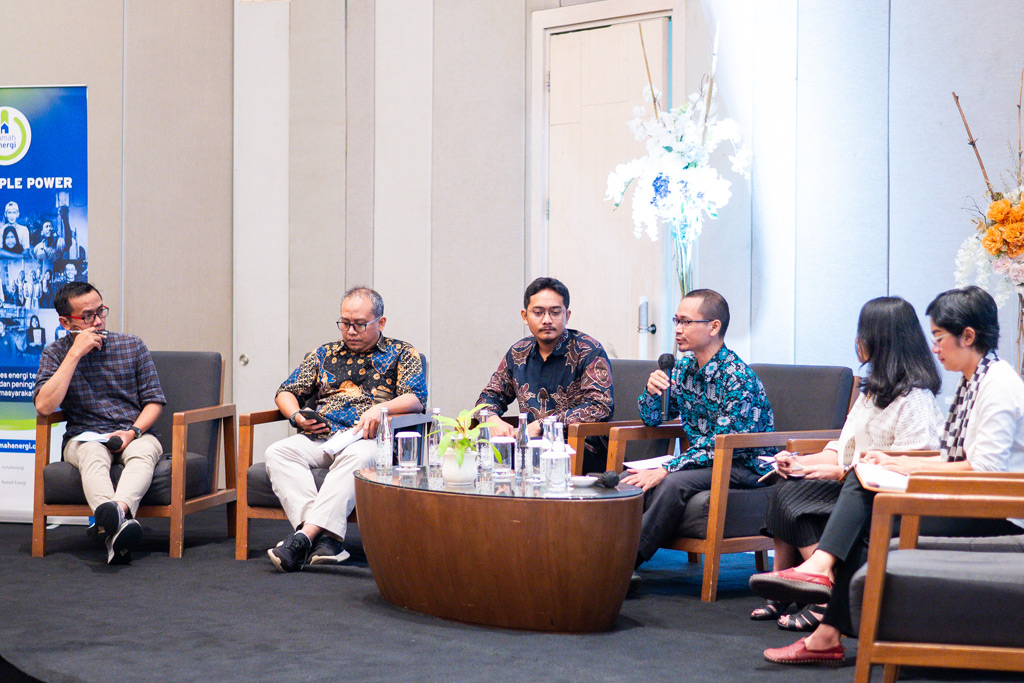
“The government needs to encourage this climate action to the wider community, cooperatives in this case those in direct contact with the grassroots of society are the spearhead in providing knowledge to people in the region or the local area. Therefore, cooperatives that are currently running are very important for being involved in this climate change action.” Said Mohammad Zainul Abidin.
Ida Ayu Maharatni gave an example of the application of cooperatives to climate change issues by the Amoghasiddhi Cooperative which has been using solar panels for operational activities since 2016. Amoghasiddhi also provides energy financing for several tourist locations in Bali.
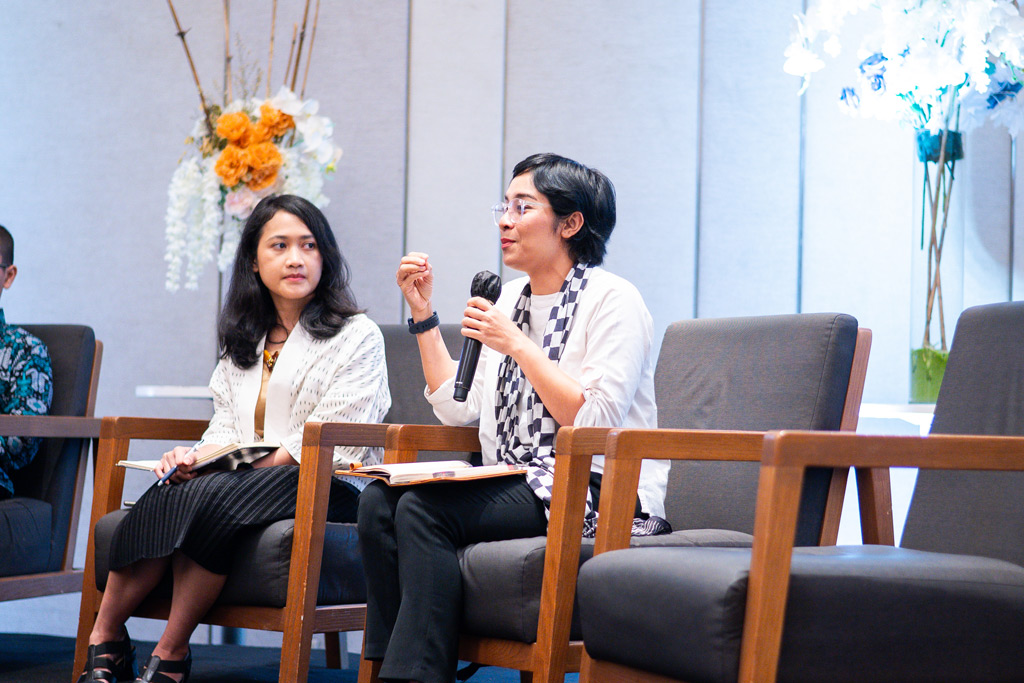
The second-panel discussion session began with a presentation regarding the Cooperative Policy & Regulatory Framework in Climate Financing by Agam Subarkah. Agam revealed that in Indonesia, there are no specific regulations regarding the legal umbrella for cooperatives, such as the OJK with Green Taxonomy. In terms of potential, Solar Power Plant is very high, but utilization is still very low. Meanwhile, regarding biogas, there is currently a Standard Classification of Indonesian Business Fields (KBLI), but unfortunately, there are no specific regulations governing it. Agam added that cooperatives need legal protection that regulates green cooperatives and their participation in climate change mitigation actions, as well as strengthening fiscal incentives.
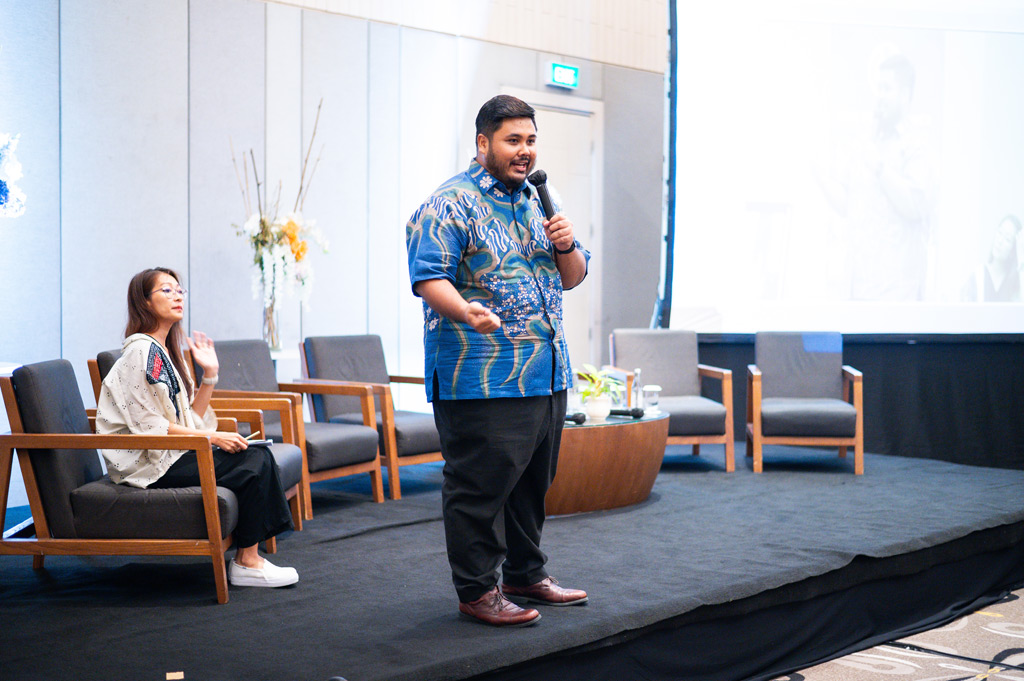
The second-panel discussion session presented a Young Policy Expert Analyst from the Ministry of Cooperatives and SMEs, Cecep Iis, who represented the Deputy Secretary for Cooperatives at the Ministry of Cooperatives and SMEs, Imam Gozali, who represented the Head of the Department of Supervision of Microfinance Institutions and Other Financial Services Institutions (OJK), Ir. Widi Pancono, General Chair of the Indonesian Renewable Energy Cooperative (KOPETINDO), and Hyacynthia Kesuma (Impact Investment Consultant, Rabo Bank Foundation). Angelique Dewi from Indonesian Climate Cendikia moderated this discussion.
Imam Gozali responded to the moderator’s question regarding the role and position of OJK in strengthening the Green Taxonomy.
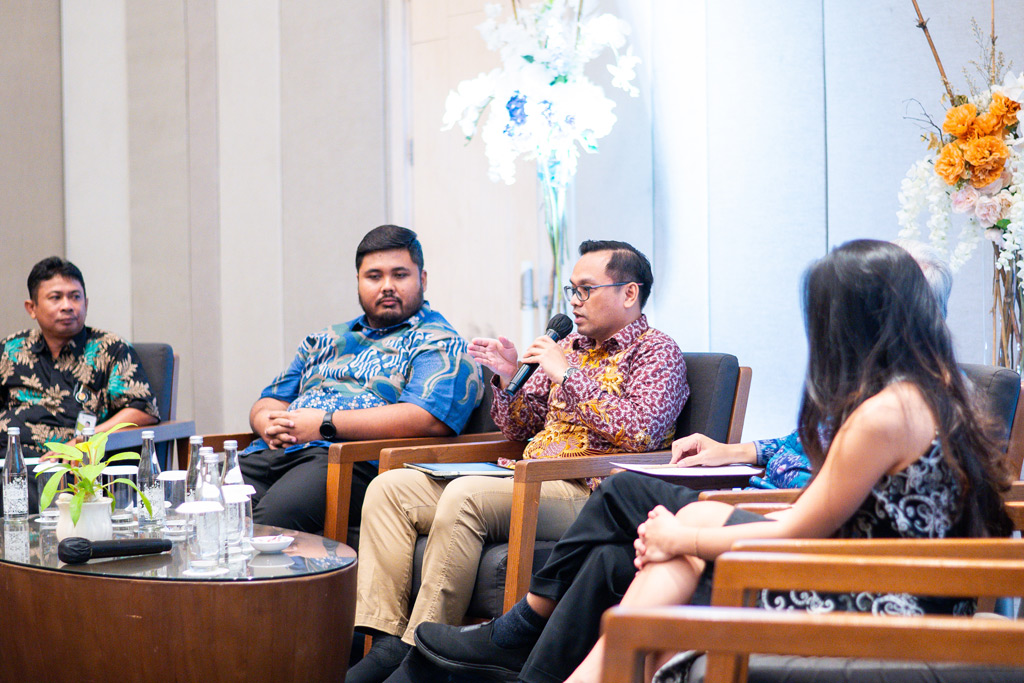
“First, we must differentiate between cooperative legal entities and business permits, because for financial service institutions themselves cooperative permits are possible.” Said Imam Gozali. “Because it is strengthened in the P2SK Law, Law 4 of 2023 where all financial institution services can have cooperative legal entities except for commercial banks. At OJK, the strengthening of the green taxonomy is already in PUJK 51 of 2017, also in PUJK 60 of 2017. So, institutions Financial services that are legal entities and are supervised by the OJK will follow the regulations in the PUJK.” he added.
Rabo Bank Foundation, which has experience providing financing to cooperatives in financing climate change, explained that the perspective of cooperatives can be divided into two, namely looking at their willingness and capability to change.
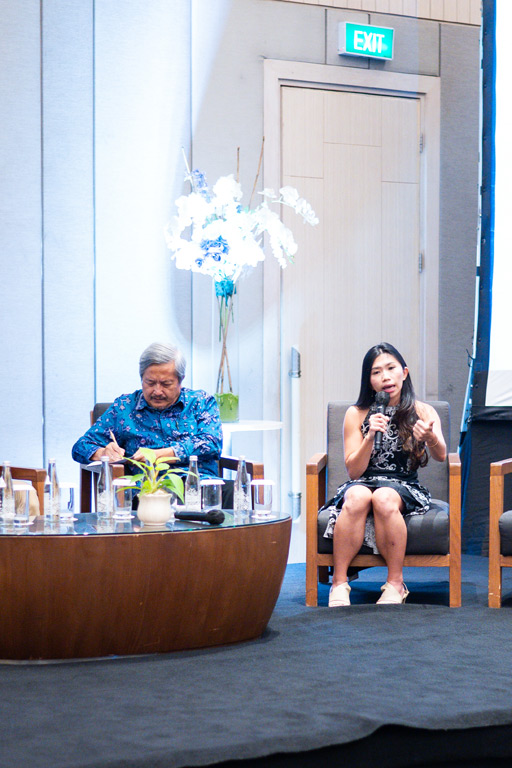
“Firstly, if we talk about willingness, whether they want to adopt something innovative, one of which is climate financing or not. Second, about capability, many cooperatives are very open to innovation, including climate financing, but they lack the capability.” Hyacynthia Kesuma said.
Referring to discussions about cooperative policies or regulations regarding climate financing, he added that if we want to make policies or regulations we must first strengthen the foundation. Don’t make regulations when there are already examples of failure or success so that they can be overcome. Furthermore, he also revealed that green cooperatives could be an option because currently there are no specific guidelines and a lack of standardization for cooperatives that want to be involved in climate financing.
In the final session, Rian and Agam presented the Cooperative Operational Guidelines for Financing Climate Change. According to Rian and Agam, the preference for Green Cooperatives is cooperatives that adopt sustainable and environmentally friendly principles in their business and production lines. The steps needed to achieve a green cooperative include a rapid assessment team, the need for training for management because there is decision-making in a management team, then an assessment of their needs and ESG-based planning, and the most important thing is supervision and mentoring.
The final panel discussion session was an opportunity to share good stories from cooperative representatives with the participants present. This discussion presented CU Sauan Sibarrung, KPSBU Lembang, KSPPS Kerta Abdi Rahardja, KSPPS Tekun Sahabat Mandiri, and Parent Credit Cooperative. This panel discussion was moderated by Danastri Widyoningtyas from YRE.
Ramdan Sobahi, the Lembang KPSBU administrator, explained that the majority of KPSBU members are cattle breeders. He further explained how the transformation of the Lembang area from an agricultural area to a tourist area resulted in the loss of land for animal feed.
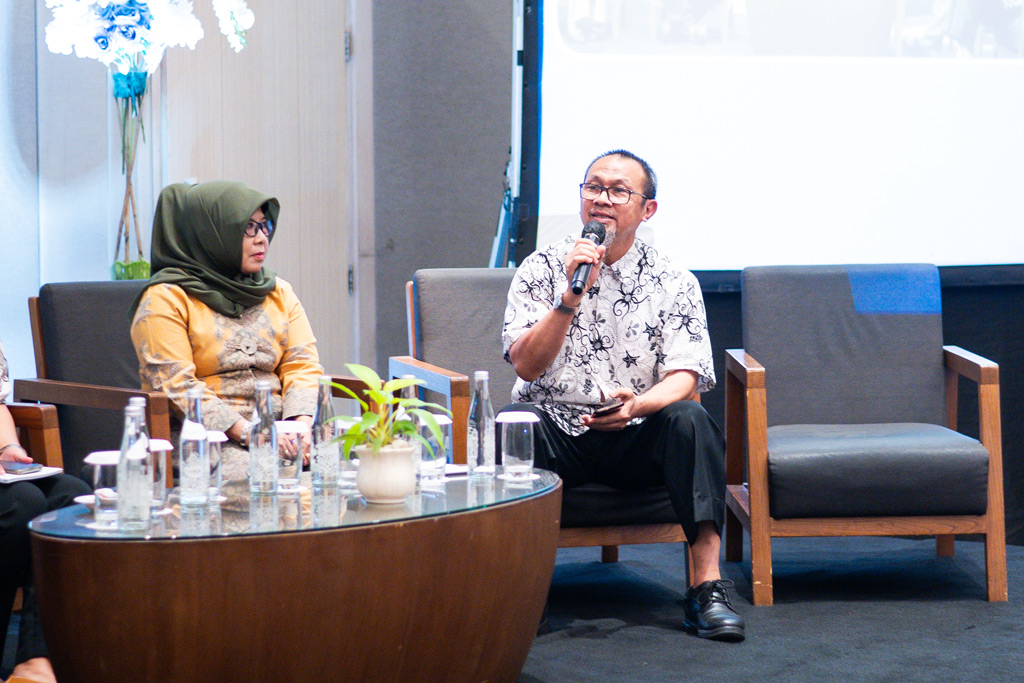
“Previously, there were only 5,000 cows, and now there are 20,000 cows. Because Lembang has become a tourist area, this has resulted in farmers having difficulty finding feed, and there is no place to make manure, and it causes pollution.”
Home Biogas (BIRU) was then present to overcome the pollution problem caused by cow dung. Using cow dung as raw material for biogas effectively reduces environmental pollution. At that time, people who were farmers and cattle breeders received credit from Rabobank with 0% interest for those who wanted to make biogas reactors. Apart from biogas, people in Lembang also get Compost and Vermicompost credits, namely using bio-slurry or biogas dregs.
In line with KPSBU Lembang, KSPPS Kerta Abdi Rahardja, and KSPPS Tekun Sahabat Mandiri have also paid special attention to businesses that are oriented towards environmental sustainability through their respective approaches. Meanwhile, CU Sauan Sibarrung stated in its strategic plan for 2023 – 2027 to become a green cooperative with a mission to build 31 biogas reactors and 360 solar panels. Anthonius, who was present online, revealed that many of CU Sauan Sibarrung’s programs lead to green cooperatives, although in terms of implementation, there are still many things that need to be done, one of which is convincing members to switch to more environmentally friendly behavior.
“Many of our programs support green cooperatives because we operate in agriculture and animal husbandry. But our difficulty is convincing members because many still use firewood, and people are used to electricity from PLN. The key to green cooperatives is understanding and The paradigm of the members must be changed so that it can be implemented well.”
Kornelia Agita, Education & Training Staff at INKOPDIT also added that another challenge faced by savings and loan cooperatives is the difficulty of providing new products to their members. Another factor, namely free funding from the government, actually makes it difficult for members to be independent and responsible for renewable energy installations, due to a lack of sense of belonging.
In the question and answer session with participants, Agam responded to questions regarding benefits and incentives from the government for cooperatives that implement green cooperatives. According to him, after doing mapping, one of them is to find out what incentives the cooperative needs. Ultimately, our goal is not only fiscal incentives but also non-fiscal (awards, recognition, and the like). This is what is expected to come from the Ministry of Cooperatives and SMEs to take steps and meet these needs.
“If you can’t provide fiscal incentives, you can at least provide non-fiscal incentives. However, if we talk about incentives, perhaps it would be more appropriate for the Ministry of Finance. Currently, there is nothing specific that provides incentives, such as price reductions and the like. I hope we can “help advocate for this because what we are doing now is only the first step. So we can massively scale it together. We hope this paper can reach the ministers’ desks so that a policy can be realized that answers this question.” Agam said.


